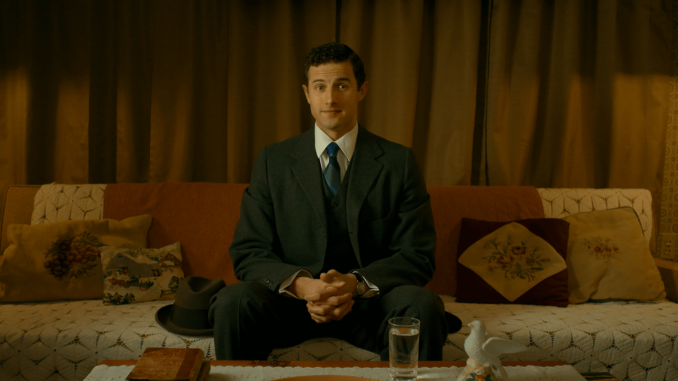
Review Fix chats with director Danielle Katvan who discusses her latest film, “The Foster Portfolio” and what it was like to work with the writings of Kurt Vonnegut.
Review Fix: How does it feel to be a part of the Tribeca Film Festival?
Danielle Katvan: As a born and raised New Yorker, it’s an honor to have our world premiere here at the Tribeca Film Festival. Not only is it one of the most prestigious festivals in the world, but It feels like a perfect fit, since the film was shot mostly in New York, and our cast and crew could attend the world premiere.
Review Fix: How does it feel to be sharing the work of someone so iconic?
Katvan: When I first read The Foster Portfolio, I was instantly captivated by Vonnegut’s writing style, which felt like a perfect fit for my sensibilities as a filmmaker. His use of absurdity and dark humor, irony and eccentric characters all really spoke to me and I felt that I could really bring a vision to his story. I also felt a lot of responsibility to stay true to Vonnegut’s original work, which is why the film has such a literary feel. I wanted to include voice over for that reason, and also because it fits with the noir feel of the film – yet I didn’t want it to be what pushes the story forward or have it feel too expositional. I also kept a lot of the original dialogue. Overall I think we succeeded in capturing the tone of Vonnegut’s work, but the film also very much feels like it’s in my voice – so I’m very happy with that balance. A good friend of Kurt Vonnegut’s and director/producer, Robert B. Weide, said that if Kurt were alive to see this film he would have “cackled with joyâ€â€¦ so that makes me happy.
Review Fix: What makes this film a special one to you?
Katvan: This film was a huge accomplishment for me. I was still in film school when I first read the story and reached out to the Vonnegut estate for permission to adapt it. I was shut down right away, but after five persistent years of emails and phone calls with the estate, I was finally granted permission to make the film. But getting permission to make it was just the first challenge – as any independent filmmaker knows, producing a 20-minute period piece on a small budget is no easy task. I’m incredibly proud of the team we brought together to bring this project to life. Everyone believed in the story and my vision for it, and I think it shows in the finished product.
Review Fix: What was the mood on set like?
Katvan: The mood on set was very positive. We shot part of the film upstate New York and the crew spent a couple of nights sharing rooms and houses – some even slept on the set where we were filming. And they were all troopers about it. I think everyone was very passionate about the story and making a good product, and it was a great bonding experience as well. When we went out to celebrate after the premiere, everyone was so excited to be reunited after not seeing each other for so long. It really felt like a family coming back together.
Review Fix: Who do you think will enjoy this film the most?
Katvan: I think this is a film for anyone who is interested in history, music, family or class. Anyone that’s interested in the complexity of balancing your passions and your responsibilities, and the story of how one strange man reconciles that struggle. Herbert really is a man at war with himself – he feels such guilt about this part of himself that he keeps hidden, yet it means so much to him at the same time that he’s willing to let his family live in near-poverty in order to continue living this double-life. To me, that is fascinating.
Review Fix: Anything else you’d like to add?
Katvan: A nice anecdote about the composition of the musical score: While Nat Osborn, one of the composers, was on tour with his band in Krakow, Poland, he heard a trio of musicians playing in the plaza outside the window of his rented flat. Their playing was so beautiful, that he went down to the plaza and asked if he could hire them to come up to his room to record the soundtrack he composed for the film. At first they were weary of his request, but once he showed them the sheet music, they agreed to do it. And that’s how The Foster Portfolio’s score was recorded – by a group of incredibly talented Polish street musicians, in a little flat in the Jewish quarter of Krakow.


Leave a Reply